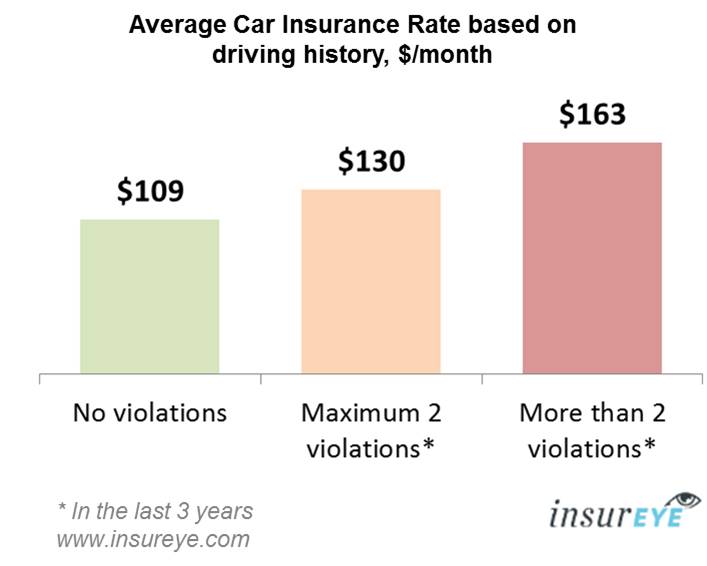I have actually avoided it often times, and my number has yet to come up. If it turns out that I need to cancel or interrupt, I'll just have to take my financial lumps I played the chances and lost. But sometimes it's probably a good concept to get this coverage for example, if you're paying a great deal of up-front money for an organized trip or short-term accommodation leasing (both of which are pricey to cancel), if you or your travel partner have questionable health, or if you have actually a loved one in the house in bad health. A standard trip-cancellation or disturbance insurance policy covers the nonrefundable punitive damages or losses you sustain when you cancel a pre-paid tour or flight for an acceptable reason, such as: You, your travel partner, or a member of the family can not take a trip due to the fact that of sickness, death, or layoff, Your trip company or airline goes out of company or can't perform as guaranteed A family member at home gets ill (check the small print to see how a family member's pre-existing condition may impact coverage) You miss out on a flight or need an emergency flight for a reason outside your control (such as a cars and truck accident, inclement weather, or a strike) So, if you or your travel partner inadvertently breaks a leg a couple of days before your trip, you can both bail out (if you both have this insurance) without losing all the cash you paid for the trip.
This kind of insurance can be utilized whether you're on an arranged trip or cruise, or taking a trip separately (in which case, just the pre-paid expenses such as your flight and any nonrefundable hotel reservations are covered). Keep in mind the difference: Journey cancellation is when you do not go on your trip at all. Trip disruption is when you begin a journey but have to cut it short; in this case, you'll be repaid just for the part of the journey that you didn't total. If you're taking a trip, it may currently include some cancellation insurance ask - What is liability insurance. Some insurance providers won't cover particular airlines or trip operators.
Ensure your carrier is covered. Buy your insurance policy within a week of the date you make the very first payment on your journey. Policies bought later than a designated cutoff date generally 7 to 21 days, as determined by the insurance provider are less likely to cover tour company or air carrier personal bankruptcies, pre-existing medical conditions (yours or those of family members at house), or terrorist events. Mental-health concerns are normally not covered. Jittery tourists are fretful about 2 big unknowns: terrorist attacks and natural disasters. Ask your business for information. A terrorist attack or natural catastrophe in your home town may or may not be covered.
Even then, if your trip operator provides a substitute schedule, your protection may become void. As for natural catastrophes, you're covered just if your destination is uninhabitable (for example, your hotel is flooded or the airport is gone). War or break outs of disease normally aren't covered. With travel turned upside down by the coronavirus pandemic, it's more vital than ever to know what travel insurance covers and what it does not. While most standard policies supply protection for flight cancellations and journey disturbances due to unforeseen events, many COVID-19related problems are excluded from protection, consisting of: Worry of travel: If you choose not to take a trip out of worry of contracting COVID-19, your insurance plan will not cover you.
The Only Guide to Which Insurance Is Best For Car
Extra COVID-19 break outs: If the location you're preparing to check out experiences brand-new shutdowns after you've scheduled the trip, do not look to your travel insurance coverage for protection. Going against federal government travel cautions: If you do have protection, your policy may be voided if you travel someplace that your government has actually considered hazardous, or if your government has limited global travel. You may have the ability to avoid the question of what is and what isn't covered by buying a costly "cancel for any factor" policy (explained listed below). Health emergency situations are the main cause for trip cancellations and disturbances, and they can come with high medical costs along with prolonged lodging bills for travel partners.


While numerous US insurers cover you overseas, Medicare does not. Likewise, make certain you're mindful of any policy exclusions such as preauthorization requirements. Even if your health insurance does cover you globally, you may desire to think about purchasing an unique medical travel policy. Much of the extra protection offered is additional (or "secondary"), so it covers whatever expenses your health insurance does not, such as deductibles. However you can likewise buy primary coverage, which will take care of your expenses up to a particular amount. In emergency situations including costly procedures or overnight stays, the hospital will usually work straight with your travel-insurance provider on billing (however not with your regular health insurance business; you'll likely need to pay up front to the health center or center, then get compensated by your stateside insurance provider later).
Whatever the circumstances, it's smart to call your insurer from the roadway to let them understand that you have actually sought medical aid. Lots of pre-existing conditions are covered by medical and trip-cancellation protection, depending upon when you purchase the coverage and how just recently you've been dealt with for the condition. If you take a trip often to Europe, multi-trip annual policies can conserve you cash. Consult your representative or insurance company before you devote. The US State Department periodically issues warnings about traveling to at-risk nations. If you're going to among these countries, your cancellation and medical insurance will likely not be honored, unless you buy additional coverage.
Compare the expense of a stand-alone travel medical plan with extensive insurance coverage, which comes with good medical and evacuation protection. A travel-insurance company can assist you sort out the choices. Certain Medigap strategies cover some emergency care outside the US; call the issuer of your additional policy for the information. Theft is especially uneasy when you consider the dollar worth of the products we load along. Laptops, tablets, electronic cameras, smart devices, and e-book readers are all pricey to change. One way to secure your investment is to purchase travel insurance coverage from a specialized business such as Travel Guard, which uses a variety of alternatives that include protection for theft.
The smart Trick of What Is Casualty Insurance That Nobody is Discussing
It's likewise smart to consult your homeowners or occupants insurance provider. Under the majority of policies, your personal effects is currently secured versus theft anywhere in the world but your insurance coverage deductible still applies. If you have a $1,000 deductible and your $700 tablet is taken, you'll need to pay to replace it. Rather than buying different insurance coverage, it might make more sense to include a rider to your existing policy to cover pricey items while you travel. Prior to you leave, it's an excellent idea to take a stock of all the high-value items you're bringing. Make a list of identification numbers, makes, and designs of your electronic devices, and take images that can act as records.